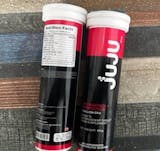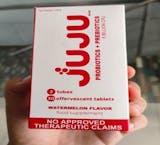Collagen is an essential protein that is responsible for the structure, elasticity, and health of our skin. It is found naturally in our bodies and plays a critical role in maintaining the integrity of our skin. Collagen is also widely used in the beauty industry to promote healthy skin, hair, and nails. In recent years, collagen has become a popular ingredient in skin whitening products and supplements. In this blog post, we will explore the use of collagen for skin whitening and its potential benefits.
IN THIS ARTICLE
09. Conclusion
What Is Collagen?
Collagen is a protein that is found in the connective tissues of the body, including the skin, bones, tendons, and cartilage. It is responsible for providing structural support and strength to these tissues. Collagen is made up of amino acids, which are the building blocks of proteins. There are 28 different types of collagen in the body, but type 1 collagen is the most abundant and is found primarily in the skin. While Type ll can be find in joints and intervertebral discs, the cushions that serve as your spine’s shock absorbers.
Collagen production decreases as we age, which can lead to a loss of skin elasticity and the formation of wrinkles. In addition to aging, collagen production can also be affected by environmental factors such as sun exposure, smoking, and pollution.
How Does Collagen Affect Skin Whitening?
Collagen plays a critical role in skin whitening by reducing hyperpigmentation and promoting an even skin tone. Hyperpigmentation is a common skin condition characterized by the darkening of certain areas of the skin due to the overproduction of melanin. Melanin is a pigment that gives color to the skin, hair, and eyes. Overproduction of melanin can be caused by a variety of factors, including sun exposure, hormonal changes, and skin inflammation.
Collagen helps to reduce hyperpigmentation by inhibiting the production of tyrosinase, an enzyme that is responsible for the production of melanin. This, in turn, helps to even out skin tone and reduce the appearance of dark spots and discoloration.
BENEFITS OF COLLAGEN FOR SKIN WHITENING
Collagen is a natural protein that is found in our bodies and is essential for maintaining healthy skin. As we age, our body’s natural production of collagen decreases, leading to the formation of fine lines, wrinkles, and dark spots. Collagen supplements have gained popularity over the years due to their numerous benefits for skin health, including skin whitening. Here are some of the benefits of using collagen for skin whitening:
Reduces Dark Spots
Collagen supplements help to reduce the appearance of dark spots by increasing the production of collagen in the body. This, in turn, helps to lighten the skin and even out skin tone. It can also reduce the sign of acne scars which can turn into dark spots.
Improves Skin Texture
Collagen supplements improve skin texture by increasing the elasticity and firmness of the skin. This helps to smooth out fine lines and wrinkles and gives the skin a more youthful appearance.
Boosts Skin Hydration
Collagen supplements also help to boost skin hydration, which is essential for maintaining healthy and glowing skin. Hydrated skin appears brighter and more radiant, and collagen helps to lock in moisture, keeping the skin supple and plump.
Protects Against Sun Damage
Collagen supplements have been shown to protect the skin against sun damage. Exposure to UV radiation from the sun can cause skin darkening and age spots, and collagen helps to protect the skin from this damage.
Promotes Skin Regeneration
Collagen supplements promotes anti ageing, skin and skin regeneration by stimulating the production of new skin cells. This helps to replace old, damaged skin cells with new, healthy ones, resulting in brighter, more even-toned skin.
Collagen supplements offer numerous benefits for skin whitening, including reducing dark spots, improving skin texture, boosting skin hydration, protecting against sun damage, and promoting skin regeneration. Adding collagen supplements to your skincare routine can help you achieve brighter, more youthful-looking skin.
Different Types of Collagen Supplements and Their Benefits for Skin Whitening
Collagen supplements come in various forms, and each has its unique benefits for skin whitening. The most common types of collagen supplements are hydrolyzed collagen, collagen peptides, and collagen drinks.
Hydrolyzed collagen
Hydrolyzed collagen is a type of collagen that has been broken down into smaller peptides, making it easier for the body to absorb. It is available in powder form and can be added to smoothies or other beverages. Hydrolyzed collagen helps to promote skin elasticity, reduce fine lines and wrinkles, and improve skin hydration, all of which contribute to a brighter and more even complexion.
Collagen peptides
Collagen peptides are also broken down collagen molecules but are smaller than hydrolyzed collagen. They are easily absorbed by the body and can be found in capsule or powder form. Collagen peptides help to improve skin elasticity and firmness, reduce the appearance of wrinkles, and promote overall skin health, leading to a brighter and more youthful-looking complexion.
Collagen drinks
Collagen drinks are a convenient way to consume collagen. They are available in pre-packaged bottles or can be made at home by mixing collagen powder with water or other liquids. Collagen drinks help to promote skin hydration, reduce fine lines and wrinkles, and improve skin elasticity and firmness, leading to a more radiant and even skin tone.
Overall, incorporating collagen supplements into your daily routine can provide numerous benefits for skin whitening and overall skin health. It is essential to choose the type of collagen supplement that best suits your needs and to follow the recommended dosage for maximum effectiveness.
How to Use Collagen for Skin Whitening
There are several ways to use collagen for skin whitening, including topical products and supplements. Here are some of the most popular methods:
- Collagen creams and serums: Collagen creams and serums are topical products that are applied directly to the skin. They contain high concentrations of collagen and other ingredients that can help to reduce hyperpigmentation and improve skin tone.
- Collagen supplements: Collagen supplements are oral supplements that contain high concentrations of collagen. They are designed to be taken daily and can help to improve skin health and reduce hyperpigmentation. In recent years, collagen supplements have become popular. Most are hydrolyzed, which means the collagen has been broken down to make it easier to absorb. These supplements come primarily in powder form but are also available in capsules. The types of collagen found in supplements vary — some contain one or two types, while others contain up to five. (Source: healthline.com) Some collagen supplements include glutathione capsules in their formula.
- Collagen masks: Collagen masks are sheet masks that are infused with collagen and other ingredients that can help to improve skin health and reduce hyperpigmentation.
Incorporating Collagen into Your Skincare Routine
Now that you have an understanding of the different types of collagen supplements and products available for skin whitening, it’s time to explore how to incorporate them into your skincare routine.
- Determine which collagen product is best for your needs and the amount of collagen you need: As discussed earlier, collagen products come in various forms, including creams, serums, and supplements. Consider your skin type and specific concerns when choosing a product.
- Cleanse your face: Before applying any skincare products, it’s essential to cleanse your face to remove any dirt or makeup residue. Use a gentle cleanser to avoid stripping your skin’s natural oils.
- Apply collagen product: After cleansing, apply your chosen collagen product according to the instructions on the packaging. Typically, collagen creams and serums should be applied to the face and neck in a gentle, circular motion.
- Use sunscreen: Sun damage is one of the primary causes of dark spots and hyperpigmentation. To prevent further discoloration, apply a broad-spectrum sunscreen with at least SPF 30 daily.
- Maintain a healthy lifestyle: In addition to using collagen products, maintaining a healthy lifestyle can also help promote skin whitening. Drink plenty of water, eat a balanced diet rich in antioxidants, and get enough sleep.
It’s important to note that while collagen products can be effective for skin whitening, they are not a miracle solution. Consistent use, along with a healthy lifestyle and proper skincare routine, can help achieve the best results.
Additionally, be aware of any potential side effects, such as irritation or allergic reactions, and discontinue use if necessary. Always consult with a dermatologist or healthcare professional before incorporating new products into your skincare routine.
Incorporating collagen products into your skincare routine can be a beneficial addition to your journey towards skin whitening. With consistent use and proper care, you can achieve a brighter, more even complexion.
It is important to note that while collagen can be an effective ingredient for skin whitening, it is not a magic solution. It is important to use collagen in conjunction with other healthy skin practices, such as sun protection, a healthy diet, and regular exercise.
Potential Side Effects of Collagen
Collagen is generally considered safe for consumption and topical use, but like any supplement or skincare product, it may have potential side effects that users should be aware of.
One of the most common side effects of taking collagen supplements is digestive issues such as bloating, diarrhea, or constipation. This may be due to the high levels of protein in collagen, which can be difficult for some people to digest.
In rare cases, collagen supplements may cause an allergic reaction. Symptoms may include itching, hives, or difficulty breathing. Anyone experiencing these symptoms should stop using collagen products immediately and seek medical attention.
When used topically, some individuals may experience skin irritation or allergic reactions to collagen-based creams or serums. This may result in redness, itching, or swelling in the area where the product was applied. If this occurs, discontinue use of the product and consult with a dermatologist.
Lastly, collagen supplements may interact with certain medications or supplements. It is important to speak with a healthcare provider before starting a new supplement regimen, especially if you are currently taking any medications.
Overall, the potential side effects of collagen are minimal and uncommon. It is important to follow recommended dosage guidelines and stop using products if any adverse reactions occur. As with any supplement or skincare product, it is always best to consult with a healthcare provider or dermatologist before incorporating collagen into your routine.
Frequently Asked Questions
How does collagen help with skin whitening?
The amino acids found in collagen help keep your skin looking smooth, even, and healthy. To improve an uneven complexion, collagen is the answer. Collagen’s amino acids can also help minimize the appearance of dark spots and scars from acne or other skin issues.
Is collagen okay for sensitive skin?
If you have a dry skin type or sensitive skin, it’s best to use this ingredient in moderation. You can find other skin care products with collagen as an ingredient, such as: Serums: Collagen serums, when paired with other active ingredients, can boost protein to your complexion.
How do I know if my collagen is working?
After daily collagen supplementation for a few weeks, you will typically start to notice a few things: hair growth, skin hydration and skin moisture, improvement in joint health and skin health, lessening of fine lines, and other possible anti-aging improvements.
Can collagen actually whiten the skin?
There is no scientific evidence to suggest that collagen can directly whiten the skin. However, collagen can improve the overall appearance of the skin by promoting skin elasticity, reducing fine lines and wrinkles, and improving skin hydration. This can lead to a brighter, more youthful-looking complexion, which may appear lighter in tone.
Are collagen supplements safe?
Collagen supplements are generally considered safe, but it is important to choose a reputable brand and to follow the recommended dosage. Some people may experience side effects, such as digestive issues or allergic reactions, so it is important to speak with a healthcare provider before taking any new supplements.
Conclusion
In conclusion, using collagen for skin whitening is a safe and effective way to achieve a brighter, more even skin tone. Collagen not only helps to boost skin health and elasticity, but also aids in reducing the appearance of dark spots, hyperpigmentation, and age spots. By promoting the production of melanin and improving skin cell turnover, collagen supplements can help to enhance the skin’s natural radiance.
Although collagen supplementation may not provide overnight results, it is a worthwhile investment in long-term skin health and beauty. With consistent use, individuals can expect to see gradual improvements in their skin’s overall appearance, texture, and tone.
So, if you’re looking to achieve a brighter and more even complexion, consider giving collagen supplements a try. With a variety of options available on the market, including powders, capsules, and even skincare products, there is sure to be a collagen supplement that suits your needs and lifestyle.
Don’t wait any longer to start your journey towards brighter, healthier-looking skin. Try incorporating collagen for skin whitening into your daily routine today and see the difference for yourself!










